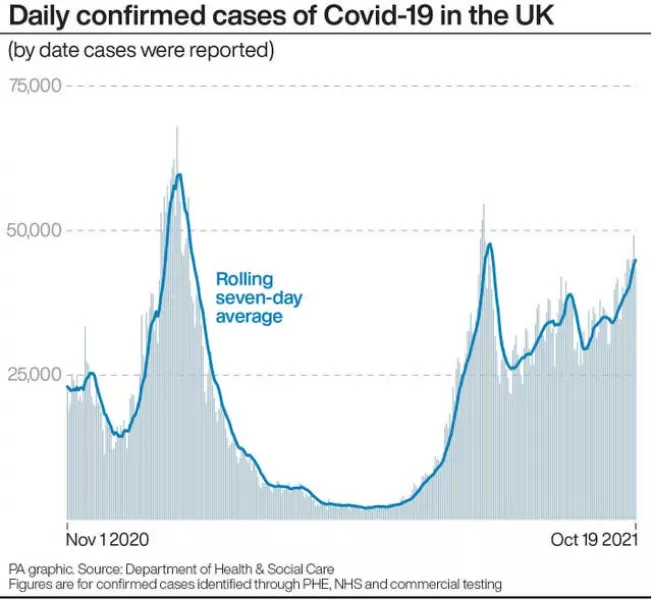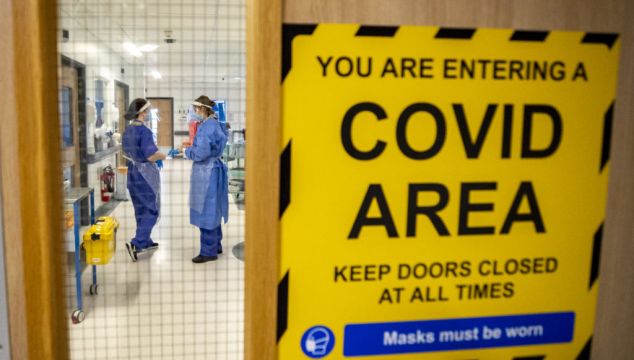Coronavirus deaths in the UK have risen to their highest daily level since early March, while cases are at their highest for almost three months.
The latest figures come as Downing Street said it is keeping a “very close eye” on increasing case rates and after a leading scientific advisor warned it is “critical” that the Covid-19 booster programme is accelerated.
On Tuesday, the UK government said a further 223 people had died within 28 days of testing positive for Covid-19, bringing the UK total to 138,852.
While the numbers are often higher on Tuesdays because of a lag in reporting deaths and cases over the weekend, this is the highest figure for daily reported deaths since March 9th.
Meanwhile, the seven-day average for cases is standing at 44,145 cases per day — the highest level for almost three months.
The UK now has one of the highest weekly rates of new reported cases in the world.
While hospital admissions and deaths in the UK are slowly creeping up, vaccines are still working well overall to prevent severe disease.

Number 10 said the government was “not complacent” about rising coronavirus cases but added the level of hospital admissions and deaths were “an order of magnitude lower” compared to earlier in the pandemic.
The British prime minister’s official spokesman said there were “no plans” to use the contingency measures set out in the autumn/winter strategy, and stressed that “the most important message for the public to understand is the vital importance of the booster programme”, as well as for eligible children to come forward for a jab.
Professor Neil Ferguson, from Imperial College London, and a leading member of the Scientific Advisory Group for Emergencies (Sage), said there is a need to speed up boosters and the vaccination of teenagers, who he suggested should be given two doses of a jab to block infection and transmission.
UK health secretary Sajid Javid said the government is “ramping up” the vaccination programme, with children aged between 12 and 15 years old able to use the national booking service to secure their Covid-19 jabs “to make the most of half-term next week”.

Prof Ferguson, whose data was instrumental to the UK going into lockdown in March 2020, said the UK had higher Covid-19 cases than other countries for a number of reasons.
He told BBC Radio 4’s Today programme this was due to a “lower functional immunity” in the UK population compared to most other Western European countries.
He said this is down to waning immunity after a successful early vaccine rollout and a bigger reliance on the AstraZeneca vaccine, which he said protects very well against very severe outcomes of Covid-19 but “protects slightly less well than Pfizer against infection and transmission, particularly in the face of the Delta variant”.


He added that the UK is no longer in the top rank of European countries in terms of overall vaccination coverage, particularly in vaccinating teenagers.
Just over 67 per cent of the UK population have received two doses of vaccine according to government figures, compared with at least 75 per cent in Denmark, 79 per cent in Spain and 86 per cent in Portugal.
The weekly rate of new reported cases of Covid-19 in the UK has jumped from 367 cases per 100,000 people at the start of October to its current level of 463 per 100,000.
By contrast, rates have dropped to very low levels in neighbouring countries such as Spain (24 per 100,000), France (48) and Germany (80).







